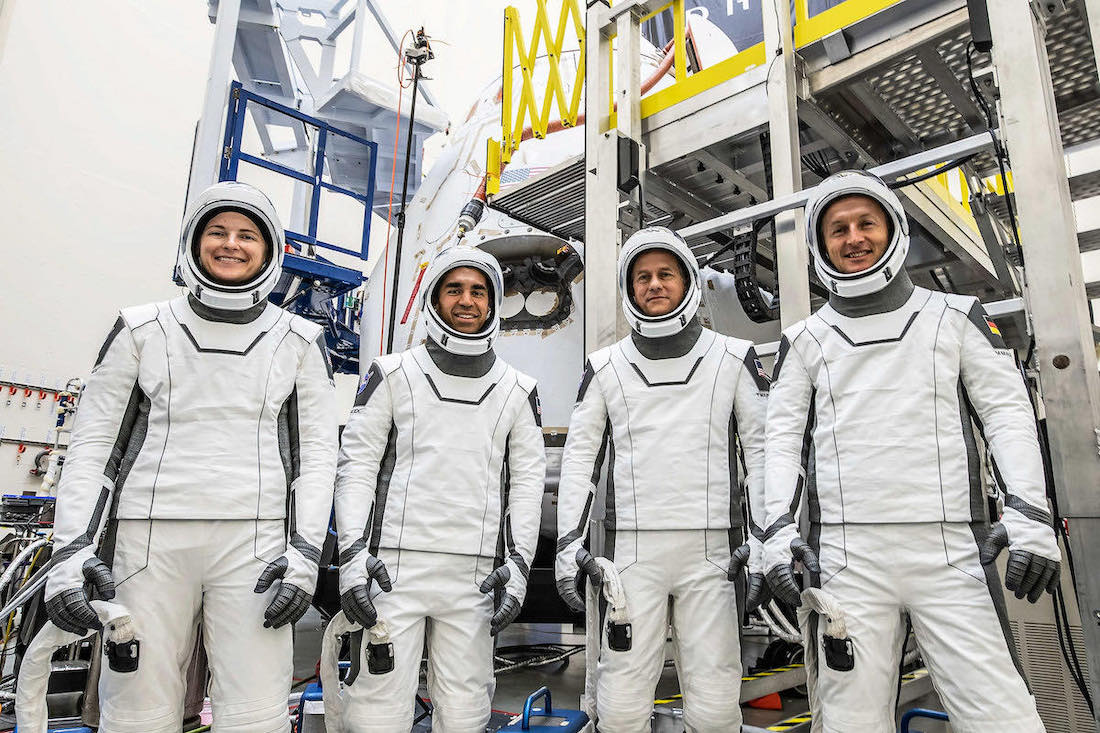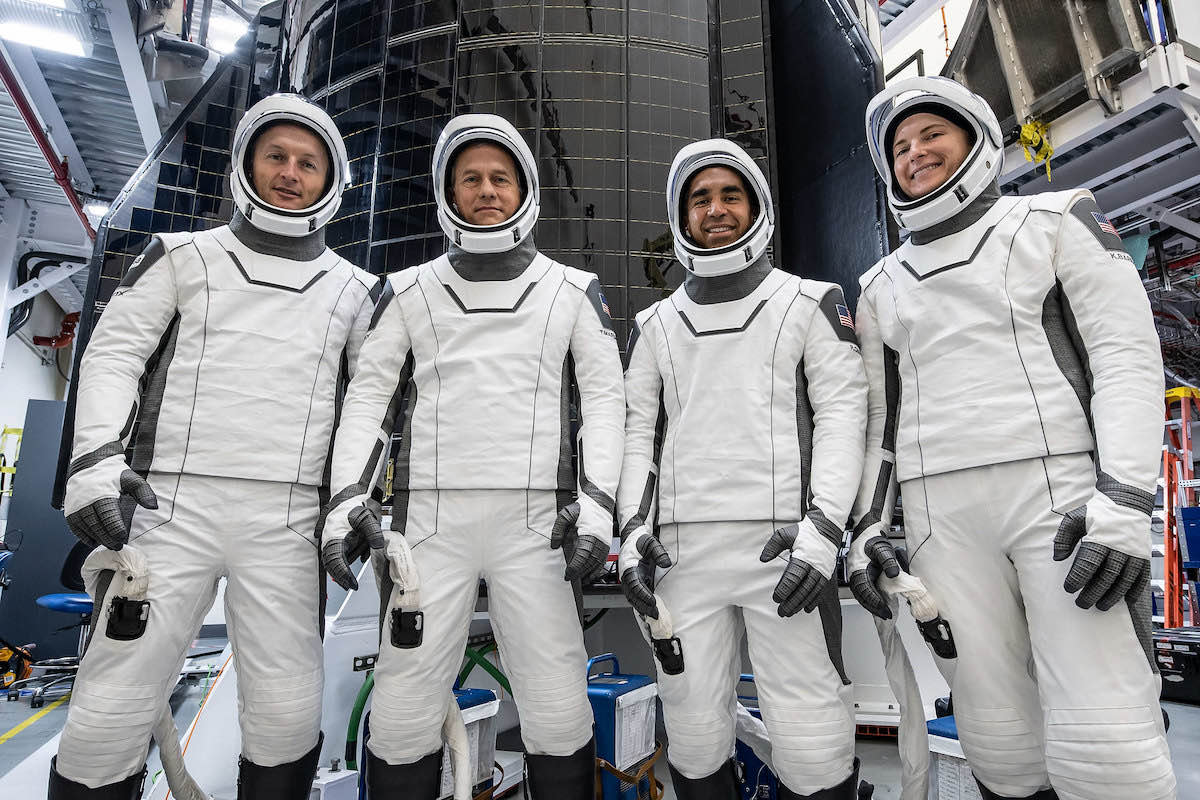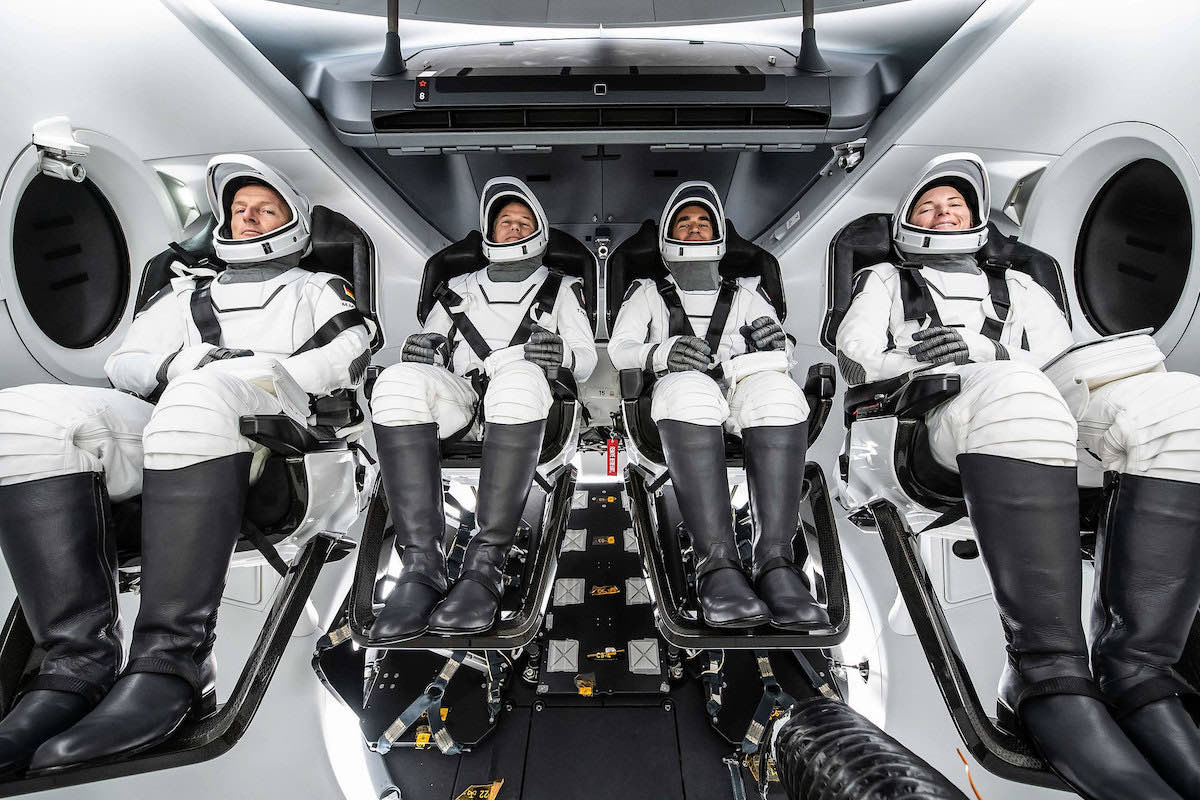
[ad_1]

The four astronauts set to blast off Oct. 30 to the International Space Station visited Cape Canaveral over the weekend for a test run inside SpaceX’s new Crew Dragon Endurance spacecraft, one of the last training events before they return to Florida on launch week.
Commander Raja Chari, a U.S. Air Force colonel, leads NASA’s Crew-3 mission to the International Space Station. Chari and the mission’s other three astronauts visited Cape Canaveral Space Force Station Saturday for the Crew Equipment Interface Test, a customary pre-flight training event officials equate to a “test drive” or “walk through” of the spacecraft.
The four-person crew will launch on the third NASA crew rotation flight to the space station, and the fifth human flight on a Crew Dragon spacecraft overall, including a 2020 test flight and the all-civilian Inspiration4 mission last month.
Chari, pilot Tom Marshburn, mission specialist Kayla Barron, and European Space Agency astronaut Matthias Maurer puit on the custom-fitted SpaceX fight suits and climbed into the Crew Dragon Endurance spacecraft Saturday at SpaceX’s processing facility at Cape Canaveral.
SpaceX performed suit leak checks and moved the Dragon spacecraft’s seats into launch position. The test is intended to familiarize astronauts with the spacecraft and hardware they will take into orbit.
NASA and SpaceX released photos of the event Wednesday.
The mission set for launch Oct. 30, known as Crew-3, will last about six months. Chari’s crew will replace the Crew-2 astronauts, who arrived at the space station in April after a flight aboard SpaceX’s Crew Dragon Endeavour spacecraft.
Crew-3 will fly with a brand new Dragon spacecraft, giving SpaceX a fleet of three active crew capsules. SpaceX is building a fourth Crew Dragon spacecraft for debut on NASA’s Crew-4 mission next year.
Chari and his crewmates selected “Endurance” as the name of the new spaceship, following a tradition set by the astronauts who flew on the first missions of SpaceX’s Crew Dragon Endeavour and Crew Dragon Resilience capsules.
The new spacecraft is nearly identical to the other capsules SpaceX’s Human spaceflight fleet. But the Crew-3 mission will mark the first time SpaceX has reused a Crew Dragon nose cone, which flew previously a different spacecraft. There are also software upgrades to guard against radiation impacts on communications systems while the spacecraft is docked at the space station.

SpaceX also added more cleaning techniques to cut down on foreign object debris, according NASA, and introduced computer changes to improve their performance during re-entry.
Engineers also modified the spacecraft’s docking procedures and mechanisms to mitigate hardware interference on the space station side of the interface, NASA said.
SpaceX also developed and implemented a quick change to the Dragon toilet on the new capsule after an issue with the waste management system on Crew Dragon Resilience spacecraft flown on the private Inspiration4 mission last month.
Sarah Walker, director of Dragon mission management at SpaceX, said the company developed a “small design improvement” for the toilet on the Crew Dragon Endurance spacecraft.
“There was a small connection in the system that we observed to be a bit loose on a vehicle or two now, so we just rolled in an improvement to make that joint a little tighter,” Walker said.
NASA said recent inspections of the toilet on the Crew Dragon Endeavour, which will bring the Crew-2 astronauts back to Earth early November, prompted managers to decide to limit use of the waste system on that spacecraft from undocking until splashdown.

Barron, a former U.S. Navy submarine officer and a rookie space flier, said the Crew-3 astronauts are finished with their primary training. The crew members trained at SpaceX’s headquarters in Hawthorne, California, to practice operating the Crew Dragon spacecraft, and at NASA’s Johnson Space Center in Houston to prepare for live and work on the space station.
“We are training complete in the sense that we are fully qualified to launch, but we will be doing some training just to keep ourselves prepared for the big day,” Barron told Spaceflight Now in an interview.
Back in Houston, the astronauts will soon enter a medical quarantine to ensure they don’t fall ill before launch.
“During that time, we’ll have an opportunity to do some sims with SpaceX to prepare for launch and docking,” Barron said. “Then we’ll have some other final training events. It’s just kind of wrapping things up and doing what we need to do to feel ready on game day.”
Chari described the training left in the next couple of weeks as “catch all” or “top off” training.
While the astronauts finish their preparations, SpaceX engineers in Florida planned to mount the Crew Dragon’s pressurized compartment, where the astronauts live, with the spacecraft’s aft trunk section. The craft’s solar panels and thermal control radiators are mounted on the trunk segment.
Then SpaceX will roll the capsule from Cape Canaveral Space Force Station to the hangar at pad 39A for attachment to the Falcon 9 rocket.
The Crew-3 astronauts will travel from their home base in Houston to NASA’s Kennedy Space Center on Oct. 25. They will participate in a countdown dress rehearsal with the SpaceX support team at launch pad 39A, where they will board their Crew Dragon capsule on top of a Falcon 9 rocket.
Launch time Oct. 30 is set for 2:43 a.m. EDT (0643 GMT), roughly the moment Earth’s rotation brings pad 39A underneath the space station’s orbital path.
Assuming an on-time launch, the Crew-3 astronauts are scheduled to ride the Dragon capsule to an automated docking with the space station at 12:36 a.m. EDT (0436 GMT) on Oct. 31.
“We’re feeling pretty ready as a crew, and ready to climb into that capsule for launch day,” Barron said.
Email the author.
Follow Stephen Clark on Twitter: @StephenClark1.
[ad_2]
Source link